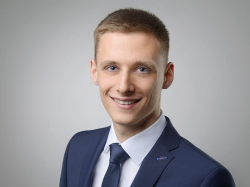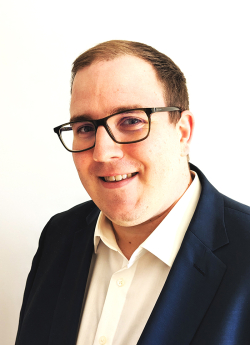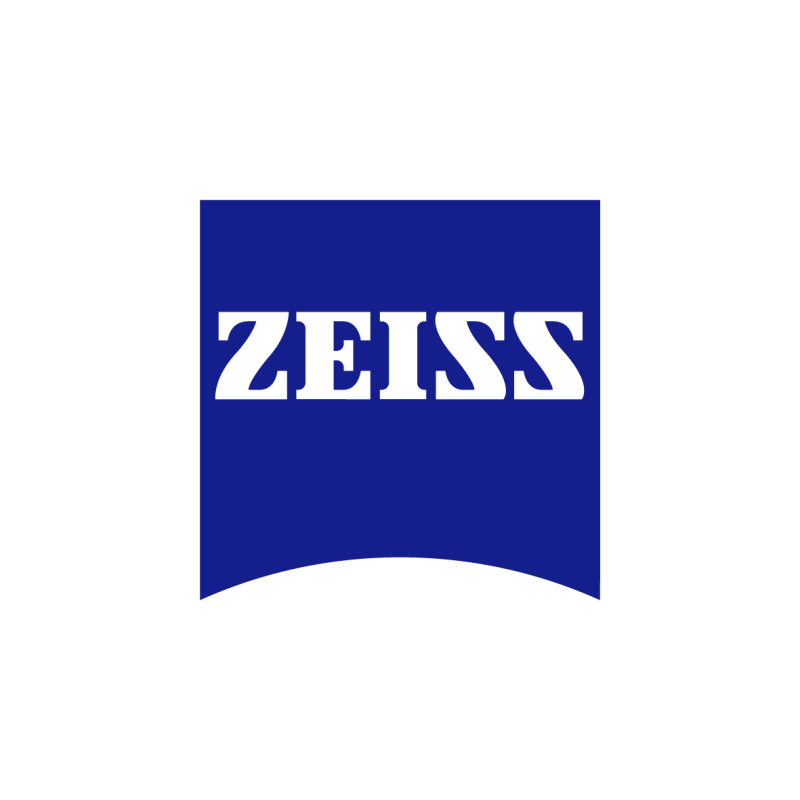AI Engineering (B. Sc.) - Rethinking Applied AI Education

Benjamin Rolf
Researcher
Otto-von-Guericke-Universität Magdeburg

Abstract
In the era of Industry 4.0, where advanced manufacturing processes are shaping industries like never before, the potential of AI cannot be ignored. To address this paradigm shift, the "AI Engineering" project, run at Institute of Logistics and Material Handling Systems at Otto-von-Guericke-University in Magdeburg, Germany, is a new way of teaching engineering. This fresh Bachelor's degree program, started in October 2023, mixes the study of Artificial Intelligence and engineering sciences together. The main goal is to teach students how to create advanced AI solutions that can be used in many different kinds of industries.Thie AI Engineering program, which is supported by the German Federal Ministry of Education and Research, is part of a collaboration between Otto-von-Guericke-University Magdeburg and Anhalt, Harz, Magdeburg-Stendal, and Merseburg universities of applied sciences. Each university adds its own special knowledge to one of five important areas: Manufacturing, Production and Logistics; Green Engineering; Biomechanics and Smart Health Technologies; Mobile Systems and Telematics; and Agricultural Economy and Technology. By offering in-depth training in these domains, we ensure our graduates possess a deep understanding of both AI principles and domain-specific expertise.At the core of AI Engineering is a hands-on, project-based learning approach that commences from the very first semester. We firmly believe that the best way to comprehend theory is by applying it to real-world challenges. Through close collaboration with regional and international companies, our students gain invaluable experience working on real use cases, utilizing actual datasets, and benefitting from industry mentorship.
Biography
Benjamin Rolf is a researcher specializing in supply chain management and logistics. He is currently pursuing a Ph.D. in Mechanical Engineering at Otto-von-Guericke-University Magdeburg, focusing on inventory management and reconfiguration in large-scale supply networks. He holds a Master's degree in Industrial Engineering Logistics and gained practical experiences when working for different manufacturing companies. His research interests lie at the intersection of supply chain management, simulation, network science, and machine learning. His contributions have been published in reputable journals and presented at international conferences. In 2024, he will continue his research as an expatriate at the RIKEN Center for Computational Science in Kobe, Japan.Education- 10/2019-06/2021 M. Sc. Industrial Engineering Logistics (with distinction) at Otto-von-Guericke-University Magdeburg, Germany- 10/2020-06/2021 Special auditing student at Niigata University, JapanProfessional Experience- 07/2021-Now: Researcher at Institute of Logistics and Material Handling Systems, Otto-von-Guericke-University Magdeburg- 01/2024-06/2024: Expatriate at RIKEN Center for Computational Science, Kobe, Japan- Internships/projects at BMW AG, LivingSolids GmbH, 4Flow AG, ...Academic Publications- International Journal of Production Research, Procedia Manufacturing, Hawaii International Conference on System Sciences, ...



